Immersive Solutions for Healthcare
Revolutionizing our healthcare system and providing novel solutions to improve human health.

Healthcare Technology
Over the last ten years, the healthcare industry has experienced a number of innovative breakthroughs. Artificial intelligence is being used for early detection and disease diagnosis. Genomics, the study of genes, enables us to take a more evidence-based approach to medicine. The “internet of medical things”, a network of interconnected medical smart devices, is changing how we share crucial medical data. The industry is experiencing significant growth, but that doesn’t mean the work is complete. Healthcare must press forward to address continuing issues that prevent them from delivering exceptional services for all.
One of the most significant challenges includes the continued use of outdated technologies. Despite the growing number of advancements, many facilities still use software with a poor user experience and invites security risks. Add to this the overcomplicated process of tracking assets creates some serious operational bottlenecks. Even if health providers were able to quickly integrate different healthcare software solutions, a lack of user adoption continues to be a huge deterrent toward better healthcare. Pharmaceutical and healthcare organizations can leverage new digital tools to offer improved patient outcomes, experiences, and care.
Where Technology Is Impacting Healthcare
Surgery
Provide surgeons with upgraded tools that range from VR headsets to haptic gloves to mimic real surgical procedures; boosting preparedness and efficiency in the operating room.
Mental Health
Modern technology is opening a new frontier in mental health support and data collection. Utilize smart devices to provide the public, psychologists, and researchers new ways to access assistance, monitor progress, and dispel toxic mental health stigmas.
Rahabilitation
Develop software-based assistive technology resources, tools, and products to help those with disabilities to successfully complete activities at school, home, work, and in the community.
Optometry
Embrace modern technology to provide the practice with optimized cloud storage, improved patient onboarding, and better client retention.
Fitness & Wellness
Use mobile applications to provide customers with new ways to better manage their health including fitness tracking, on-demand workouts, activity tracking, specialized coaching, and motivational courses.
Health Administration
Provide easy-to-access training and resources to prepare health admins keep pace with the rapidly evolving world of health IT.
Medical Marketing
Promote products and services through the power of storytelling. Utilize modern technology to increase brand awareness and product visibility to the ideal consumer.
Dentistry
Improve patient outcomes with tech-based educational resources, accessibility to virtual consults, and improved customer support.
Telehealth
Telehealth technology increases the efficiency of the healthcare system by maximizing provider productivity and removing geographical barriers to quality care.
Healthcare in a Post-COVID World
In March of 2020, the pandemic hit in full force. Healthcare organizations were forced to pivot overnight. What once was dismissed as impossible became absolutely necessary. The pandemic brought rise to many medical innovations. As we look toward a society that is vaccinated and ready to return to normalcy, we must continue to press for greater innovations. One area we see a wealth of opportunity is in how extended reality will impact the healthcare industry. Technologies like virtual and augmented reality are only just beginning to penetrate healthcare organizations. However, they have the potential to cause huge transformations in medicine and patient care.

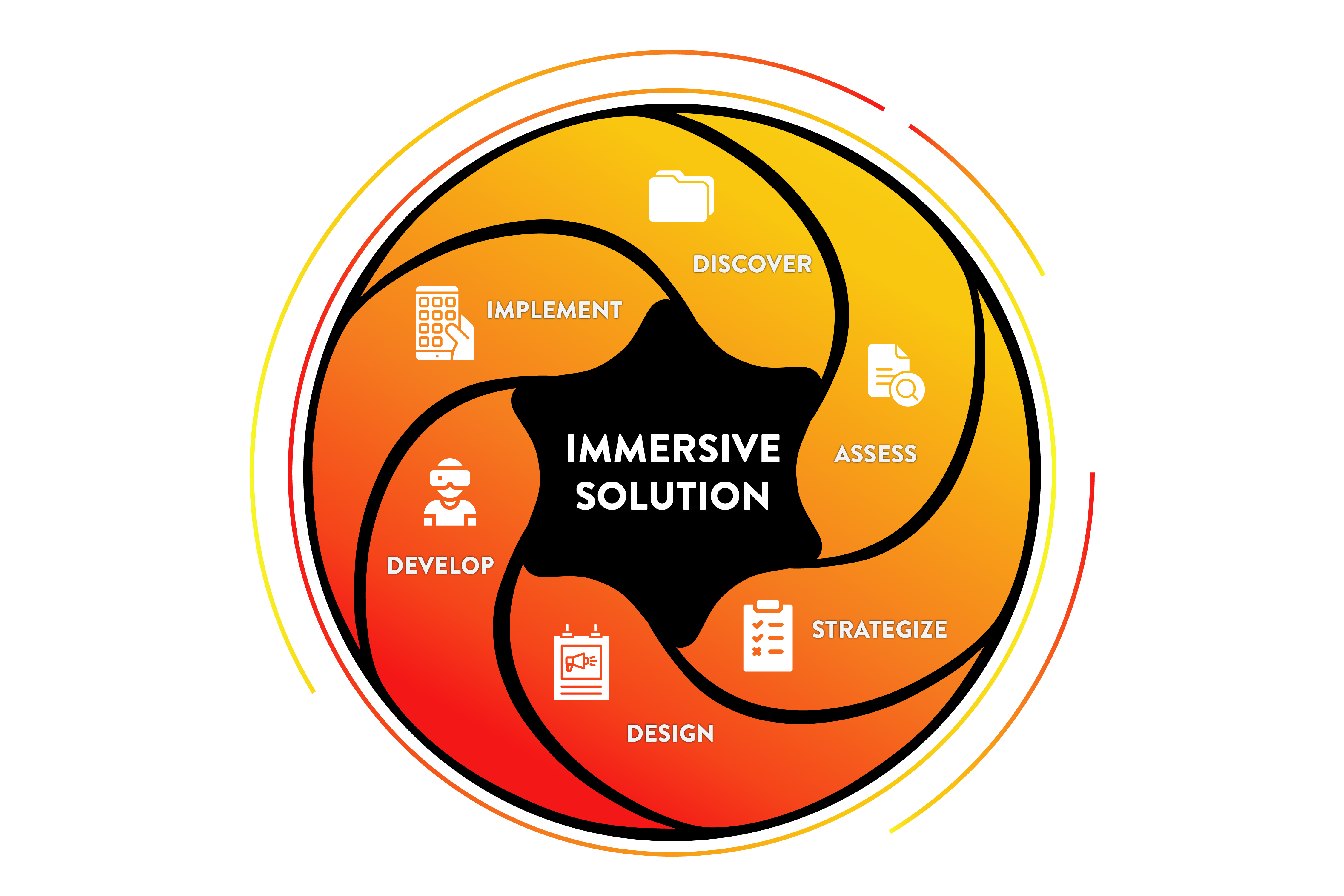
Immersive Solutions for Entertainment
Immersive solutions offer a wealth of benefits enabling healthcare organizations to connect with audiences and provide them with answers to their most pressing needs. The potential of immersive technology is now mainstream knowledge. Unfortunately, many healthcare organizations still struggle to deliver results; often squandering large investments in experiences and products that don’t truly solve a business need. Below we detail a proven process that reduces risk and maximizes growth potential.
Technology Capabilities in Healthcare
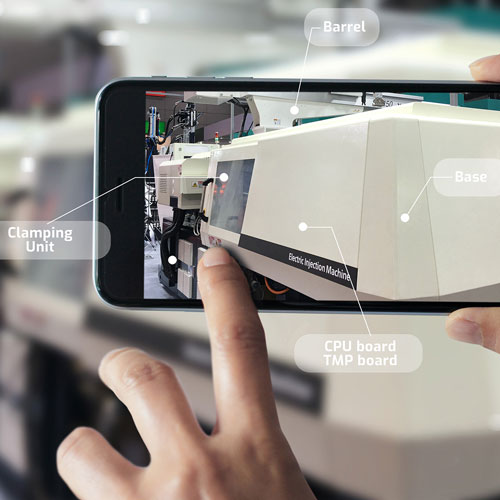
Augmented Reality
Help patients better understand their symptoms and medical state through AR-powered visualization tools.
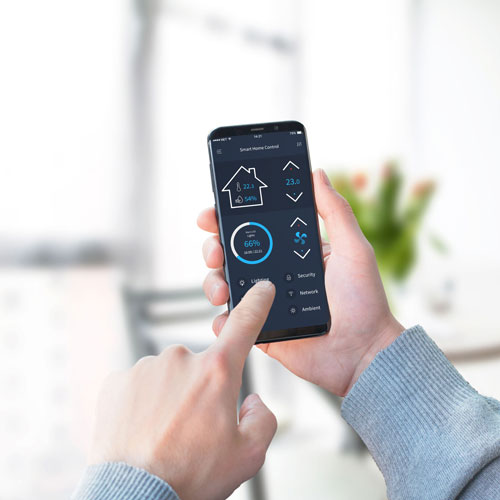
Mobile App Development
Use the convenience of mobile devices to provide medical staff with better communication and information resources.
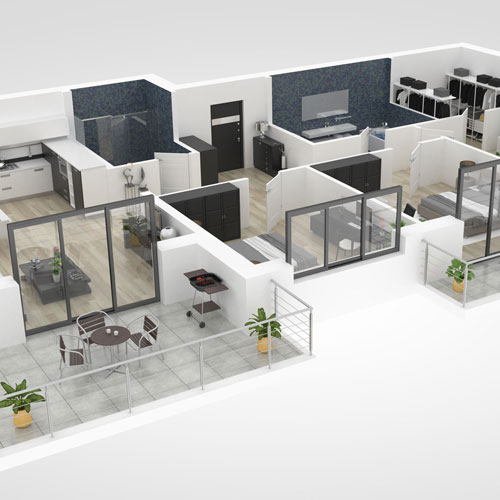
2D/3D Animation & Modeling
Render realistic anatomical images to view intuitively across all clinical specialties to improve diagnoses, surgical planning, education, and treatment outcomes.
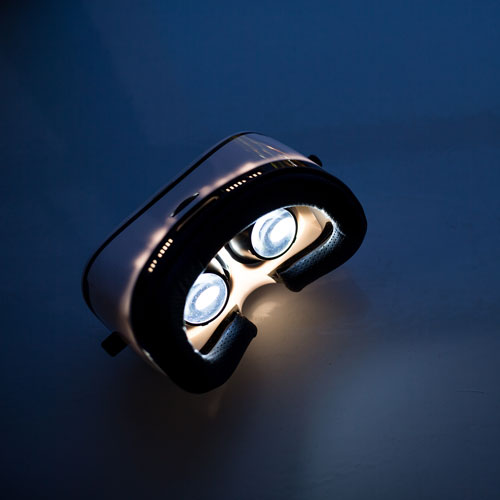
Mixed Reality
Patient care teams can collaborate remotely and conduct virtual consultations with real-time spatial information accelerating diagnosis.
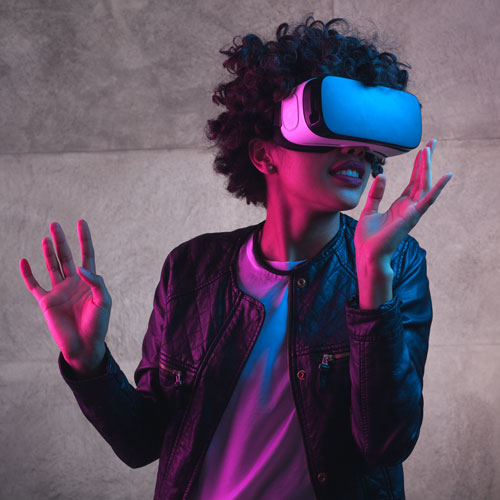
Virtual Reality
Train aspiring surgeons with real time surgical procedures in the operating room

Web App Development
Improved inventory management can reduce the operational costs of hospitals and provide competitive healthcare services.
